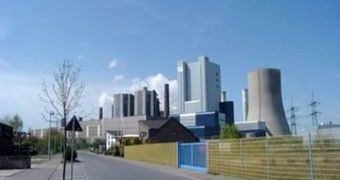A new plan seeking to exploit unconventional resources is focused on growing microscopical organisms capable of processing CO2 to provide a wide range of bio-materials.
The research is currently carried out by experts from RWE Power, working in partnership with the staff from BRAIN, a biotechnology company, Business Green informs.
In order to achieve their target, the program is backed by a considerable financial investment, expected to reach millions of euro in the near future.
So far, scientists working in the RWE's Niederaussem power plant from Germany, the first of its kind opened in the country, have managed to select 29 microorganisms out of 3,000, that appear suitable for this job.
The main goal is to store carbon emitted by power plants and feed micro-organisms with it to obtain useful materials that could be used in the construction sector.
This initiative is part of a more ample 'clean coal' program, currently worth €2m ($2.5m), which will be expanded in the near future to exploit the benefits of abundant CO2 coming from sewage water, refineries or food processing plants.
To obtain satisfactory results, RWE is interested in teaming up with 21 companies and universities following the same path. The products would be both eco-friendly and risk free.
"Our pioneering work in the search for biotechnological CO2 conversion solutions bears first fruit - we continue to lead the efforts to protect the climate," explained Dr Johannes Heithoff, head of research and development at RWE for Business Green.
Even so, some opponents indicate that the process of obtaining a 'coal-free' line of bio-materials used in insulation or construction is not as earth-friendly as it seems, since the opening of a new generation of factories stocking impressive amounts of CO2 underground could be unpredictable and dangerous in the long term.
Beneficial changes brought by coal-free projects are much-needed, especially since RWE's lignite-fired power station Niederaussem was considered one of the most polluting facilities in Europe, by WWF, according to one of its studies entitled 'Dirty Thirty,' issued in 2007.

 14 DAY TRIAL //
14 DAY TRIAL //